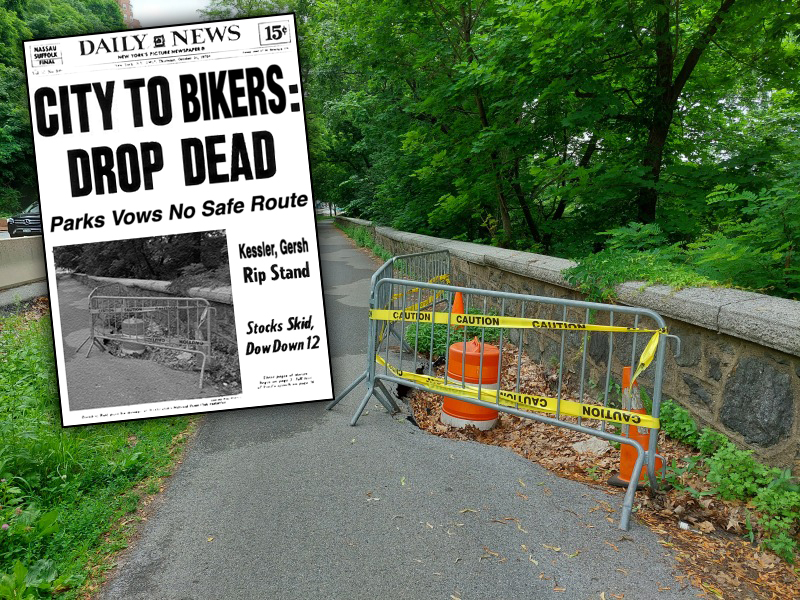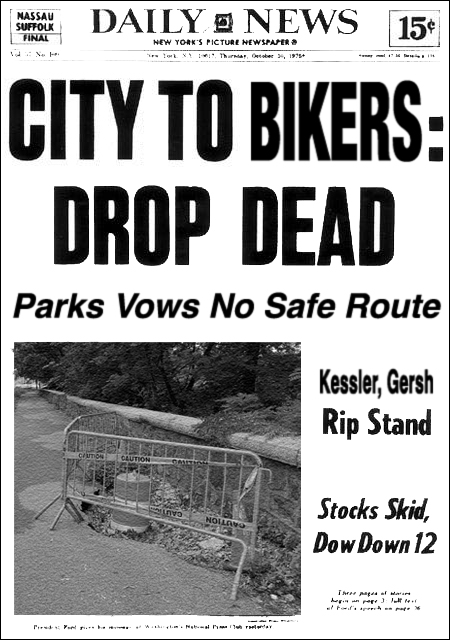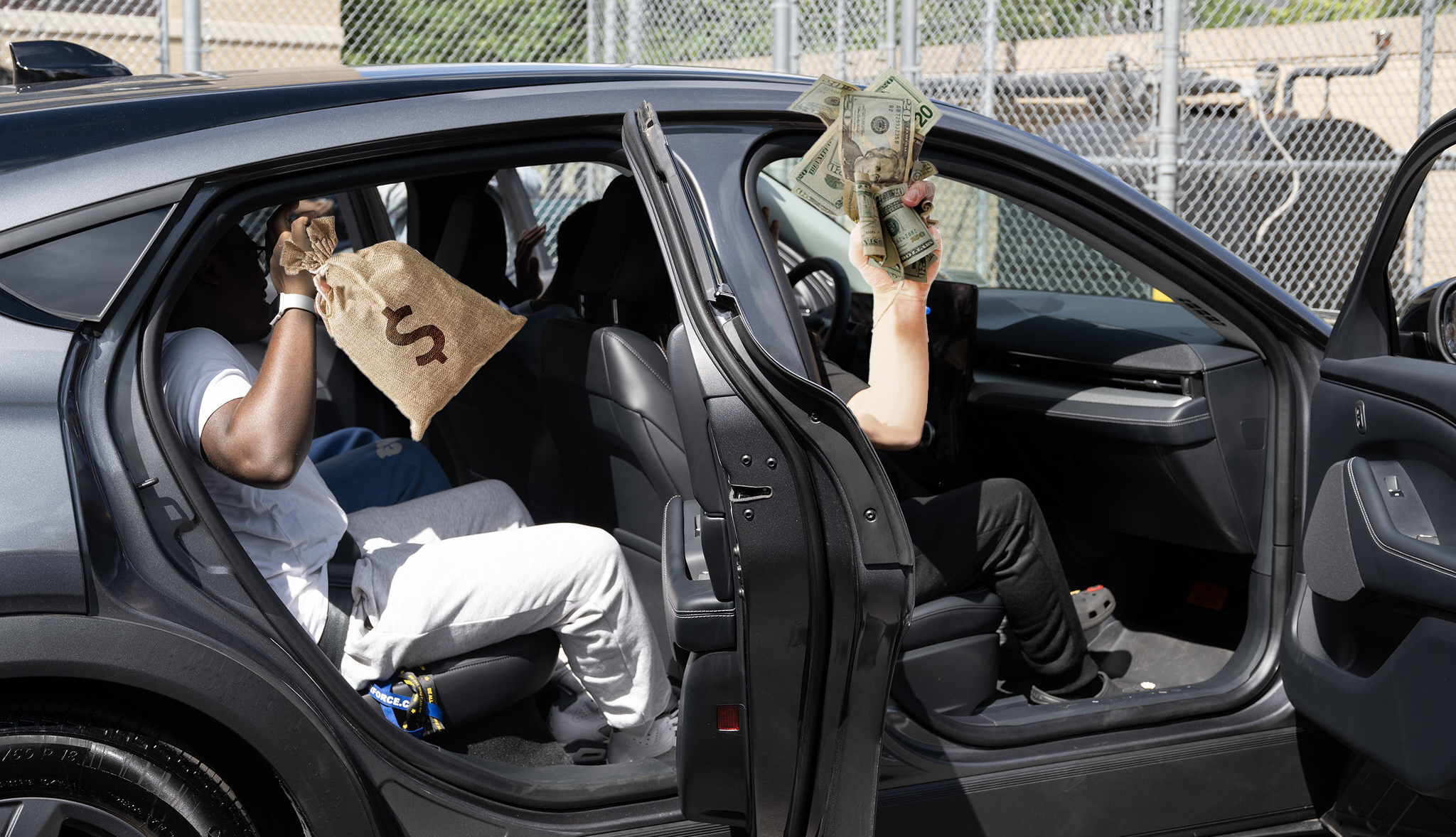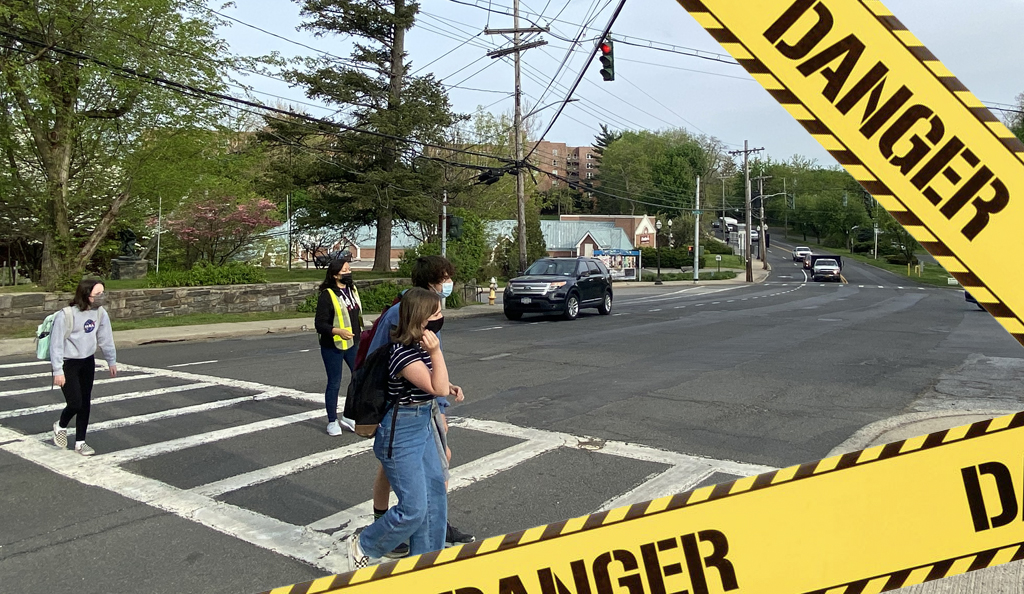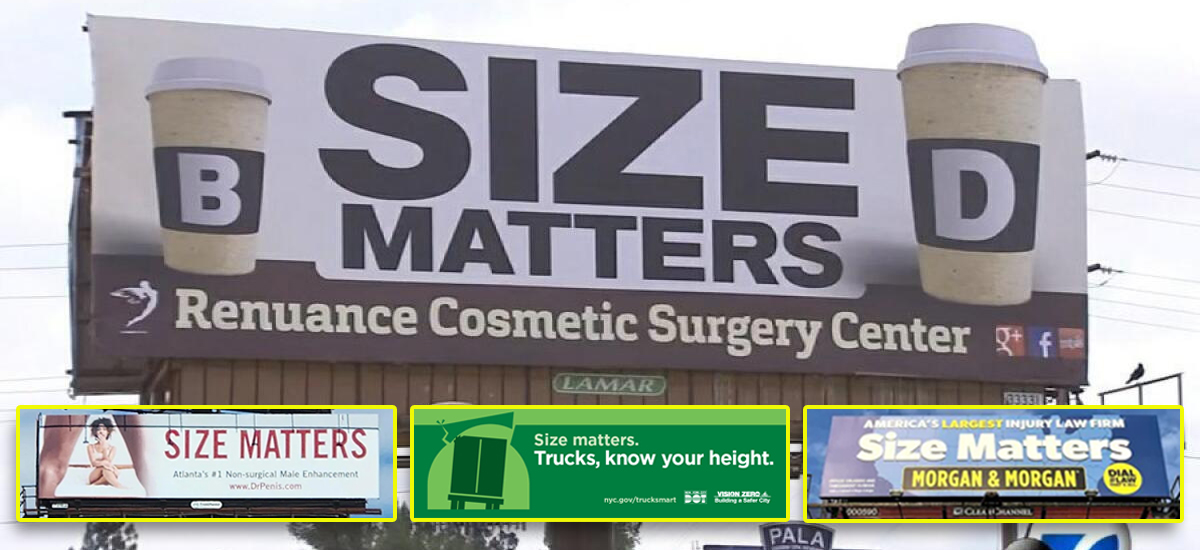"City to Cyclists: Drop Dead!"
After four months of pondering safety solutions, the city Parks Department has decided that it will shunt cyclists onto dangerous local streets when it undertakes a reconstruction of a mile of the Hudson River Greenway in northern Manhattan this fall rather than demand that the state devote a lane for bike riders on the Henry Hudson Parkway.
The greenway — a vital transit link that is the only safe north-south corridor for the many cyclists who in Manhattan and the Northwest Bronx — will close between Dyckman and 181st streets for four months starting in September for a $1.2-million repair of sinkholes and collapsed retaining walls. The proposed detour would put cyclists and pedestrians on 181st Street, Broadway, and Dyckman Street — where 259 crashes have injured 21 cyclists, 18 pedestrians and 55 motorists in the last two years, according to city data.
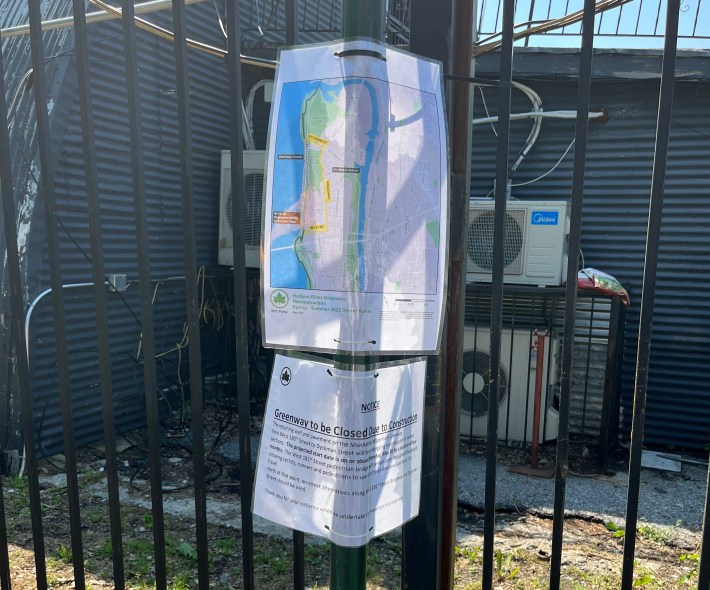
But after Streetsblog and local Council Member Carmen dela Rosa raised questions about the safety of Park's proposed detour, the agency promised to study other options. The cyclists had hoped — and local Community Board 12 had recommended a year earlier — that a protected bike lane could be established for the duration of the project inexpensively in an underused lane of the adjacent parkway, a state road. That idea gained the endorsement of former Department of Traffic Commissioner Sam "Gridlock Sam" Schwartz, who remains one of the city's foremost traffic experts.
On Tuesday, however, Parks nixed the Henry Hudson Parkway lane proposal, citing what it said was the $2-million cost of the temporary lane and the lengthy traffic study required by the state Department of Transportation. Instead, the city's DOT will install temporary bike warning and “share the road” signs at 27 intersections north and southbound along Park's original detour.
"After months of review, in order to complete this critically important Hudson River Greenway infrastructure reconstruction project, we have determined that it is imperative that this work begin this September," Parks Assistant Commissioner Crystal Howard told Streetsblog. "Executing the approximately eight-month SDOT-directed traffic study does not guarantee that a highway-placed, $2-million detour — that will take two lanes away from the Henry Hudson Parkway for four months — would be feasible, nor approved.
"With the amount of excessive deterioration that this section of the greenway experiences daily, delaying this project for another year for a possible detour that is double the cost of the actual project, will certainly force a closure, before the project begins, for everyone’s safety, if we wait," she added.
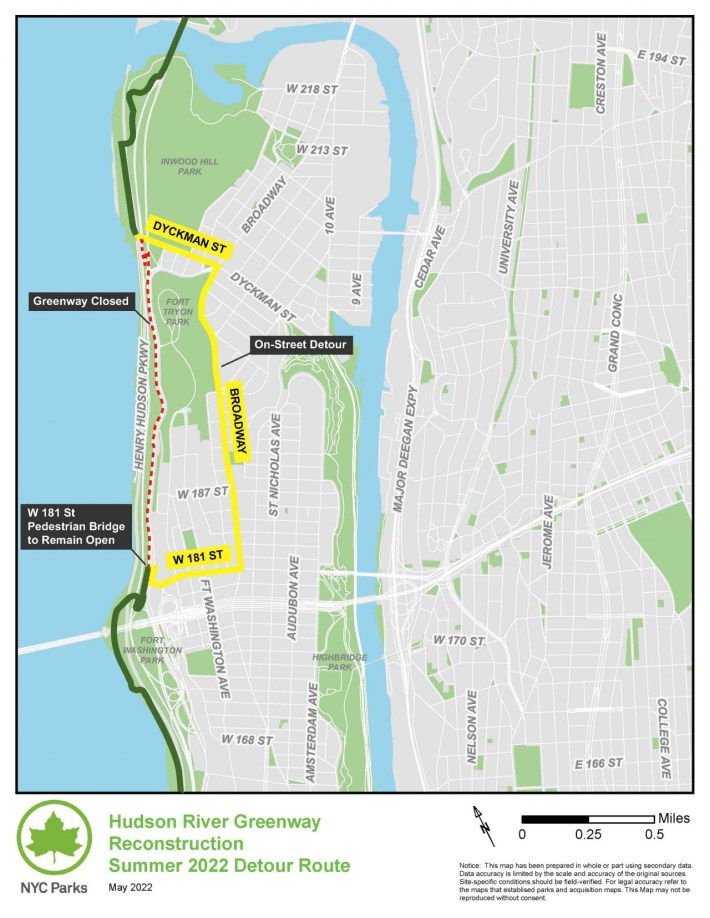
The move prompted a vociferous reaction from Washington Heights and Inwood cyclists who will be forced to use the detour to commute to work and to bring their children to school. At the very least, they were hoping that jersey barriers — concrete or hard plastic dividers used in traffic calming— could form a cordon to protect them along parts of the detour. An unprotected bike lane exists on Dyckman and a shared lane (aka "sharrows") on 181st — lanes that some local cyclists consider "deathtraps," in the words of one. But Broadway is a bus and truck route — the main uptown freight route, in fact — where speeding and double- and triple-parking are common (especially near the 34th Precinct stationhouse).
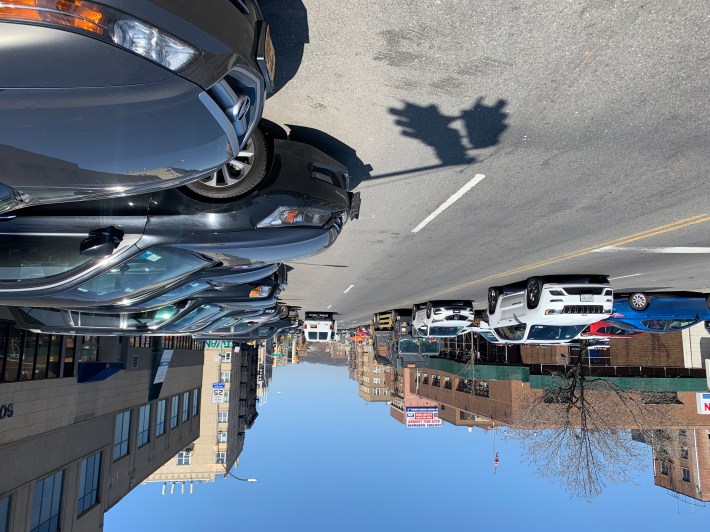
"After sitting on this proposal for four months — or half the time of the SDOT-directed-traffic-study — they will place signs?" asked incredulous local cyclist Allegra N. Legrande, who bikes to school with her children on the greenway. "Unless jersey barriers are installed along Broadway, 181st, and DyckmanSstreet," city and state agencies have "effectively canceled cycling as a means of commuting to school and work for many thousands of residents of Upper Manhattan and The Bronx in lieu of providing superior quality of service for better-financed commuters from Westchester and beyond."
Those agencies "will own every casualty on the detour," she continued. "Installing signage to prevent traffic violence is tantamount to offering up thoughts and prayers."
Stella Billings, another cyclist who uses the greenway daily, added, “Of course, the repairs to the greenway are critical. However, the detour is no detour at all. Broadway between Dyckman and 181st is always double and triple parked, with speeding cars and unclear lane boundaries. These plans offer no safety whatsoever. They simply cut off access for cyclists, period — or except us to risk our lives. It’s disappointing.”
The greenway detour is only the latest instance of what bikers describe as poor treatment by the Parks Department, which many think willfully ignores the fact that its byways have become an essential part of the city's active transportation network. The agency has failed to provide safe routes for cyclists through Central Park, where a beloved doctor was killed in 2019. Across town, bikers are faulting Parks for declining to ensure a safe route during a year-long repair of the Brooklyn Greenway. The Hudson River Greenway has been a repeated scene of strife; in 2018, Parks only moved on fixing a pedestrian bridge there that spans the tracks at West 181st Street after Streetsblog highlighted the issue. A repair of the Cherry Walk section of the greenway in Riverside Park two years ago led to complaints about lack of notice and poor signage, and the rerouting of cyclists from the main greenway onto a hilly side path around the 79th Street Boat Basin some years back still angers many. The deteriorated Ocean Parkway bike path is also an ongoing flashpoint.
The city DOT, which claims on its website that it is always seeking "to accelerate the growth of safe cycling," declined comment.
